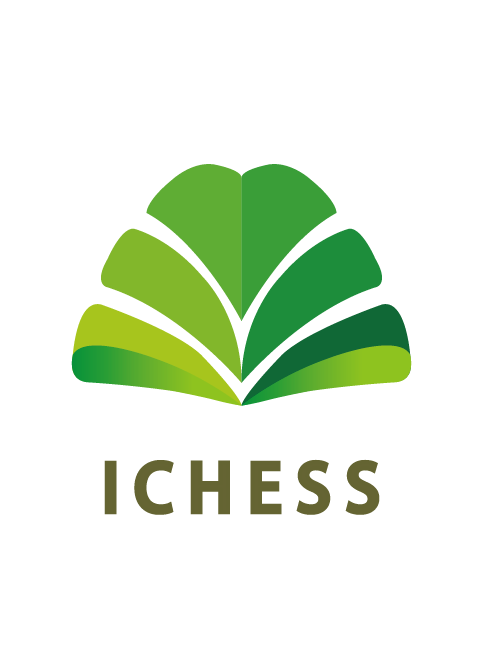
Prof. Ming Chen
University of South China, China
Speech Title: Pending determination.
Brief Introduction: Professor Ming Chen, the vice dean of the School of Economics, Management and Law. An overseas-educated returnee. A standing member of the Hunan Provincial Economic Society. A member of the Joint Committee of National-level Experimental Teaching Demonstration Centers in Higher Education. A peer review expert for the National Social Science Foundation, a reviewer for National Social Science Achievements, and a project reviewer for the Ministry of Education, Hunan Provincial Education Department, and Science and Technology Department. An outstanding postgraduate supervisor in Hunan Province, a supervisor for Applied Economics/Finance/MBA postgraduates, and a visiting scholar at Dublin University College. A reviewer for well-known academic journals such as "China Rural Economy", "China Rural Observation", "Nature Sub-press", "Land Use Policy", and "Journal of Cleaner Production". In recent years, he has been the principal investigator of several National Social Science Foundation projects, and has published dozens of academic papers as the first author in authoritative journals at home and abroad..

Prof.Seevan Saeed
Shaanxi Normal University, China
Speech Title: Educating for Humanity: Guiding Science and Knowledge Toward a Better Future
Brief Introduction: Education and scientific achievements have long served as essential forces shaping human progress, offering tools to improve quality of life, expand knowledge, and foster social development. When directed toward the well. being of society, education cultivates critical thinking, ethical awareness, and the capacity for collective problem-solving, while scientific innovation enables advancements in medicine, communication, and sustainable technologies. Yet these same achievements can generate negative consequences when misused or developed without ethical oversight. Rapid technological growth—particularly in artificial intelligence, biotechnology, and digital surveillance—poses risks such as inequality, loss of privacy, and the displacement of human labor. These challenges highlight the need for a human-centered approach to both education and scientific development. Solutions include integrating ethics into scientific curricula, promoting equal access to quality education, supporting interdisciplinary learning, and encouraging technologies that prioritize social benefit over profit or control. By aligning scientific progress with moral responsibility and ensuring education empowers individuals rather than divides them, societies can harness innovation as a genuine service to humanity. In this way, education and scientific achievements become not only markers of advancement but also foundations for a more just, equitable, and sustainable future.

Prof. Jian Wang
China University of Petroleum (East China), China
Speech Title: Pending determination.
Brief Introduction: Professor Jian Wang, male, holds a doctoral degree. He is a professor and doctoral supervisor at the School of Science of China University of Petroleum (East China). In 2002, he obtained a bachelor's degree in Computational Mathematics from China University of Petroleum (East China), and in 2012, he received a doctoral degree in Computational Mathematics from Dalian University of Technology. During this period, he also participated in a joint training program at the University of Louisville in the United States. Currently, he serves as the director of the Cross-media Big Data Joint Laboratory and the director of the Qingdao Industrial Artificial Intelligence Key Laboratory. He also holds the position of associate editor for SCI journals such as "IEEE Transactions on Neural Networks and Learning Systems" and "IEEE Transactions on Fuzzy Systems". He has been selected for the "Outstanding Talent Project" of Shandong Province and the "Smart Island Plan"talent project of Qingdao.

Assoc. Prof. Ping Li
Xi`an University Of Science And Technology, China
Speech Title: Pending determination.
Brief Introduction: Associate Professor Li, Ph.D., is a postdoctoral fellow at Shanghai Jiao Tong University, an associate professor at the School of Management of Xi'an University of Science and Technology, a key member of the "Research Base for Green and Low-Carbon Development of the Energy Industry" of the Shaanxi Provincial Soft Science Research Center, and an expert member of the Shaanxi Provincial Department of Ecology and Environment and the Shaanxi Provincial Department of Water Resources. Her research focuses on carbon neutrality and digital economy, energy security, economic policy models for renewable electricity, and "Belt and Road" investment. She has been the principal investigator of four projects funded by the National Social Science Foundation, the Shanghai Jiao Tong University's Literacy Enhancement Project, the Shaanxi Provincial Philosophy and Social Sciences Youth Project, and the Xi'an Social Sciences Foundation. She has also participated in over 10 projects related to carbon neutrality and energy transition. She has published nearly 20 papers in CSSCI, SSCI & SCI journals, including 4 papers in SCI 1st Zone TOP journals, 1 ESI Hotspot and High Citation paper. Her research results have attracted the attention of over 1,500 international scholars. She submitted decision-making reports that were adopted by the National Energy Administration and other departments. In 2023, she received the Third Prize for the Consultative and Policy-making Achievements of the Shanghai Municipal Committee of the China Democratic League.
